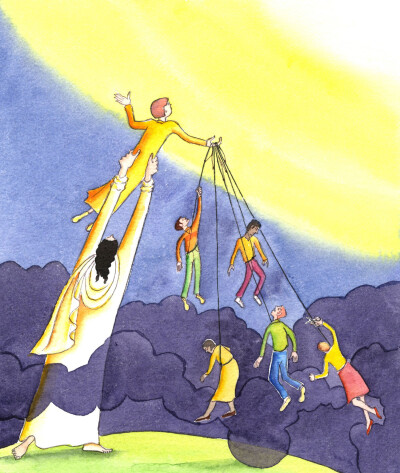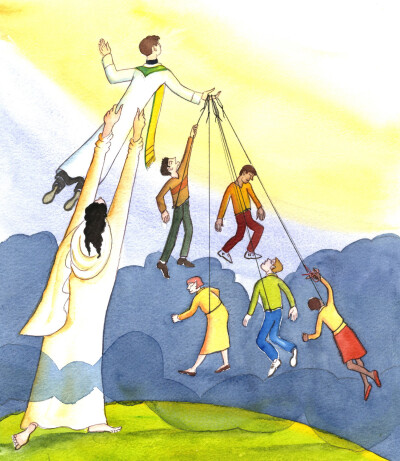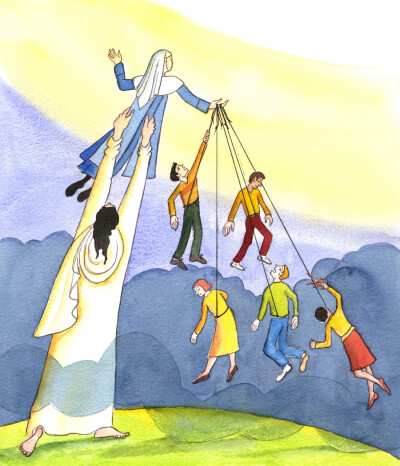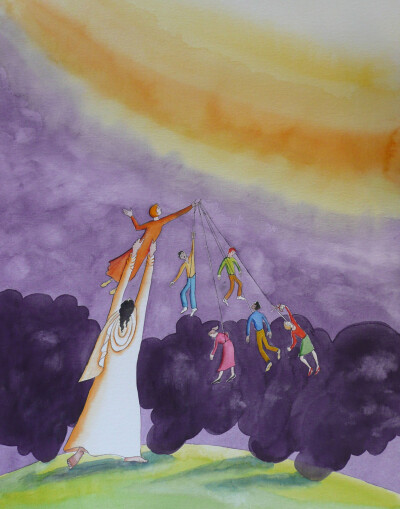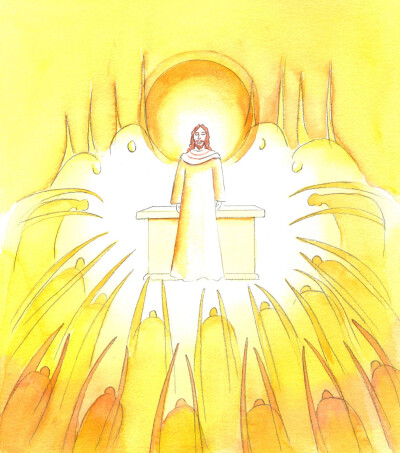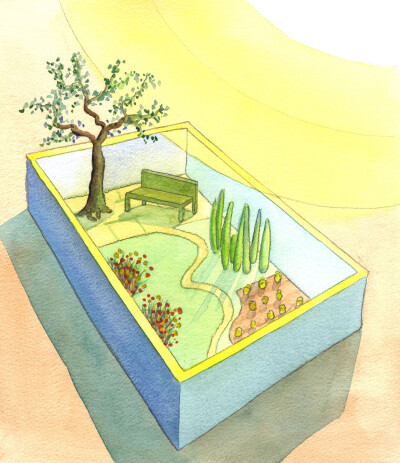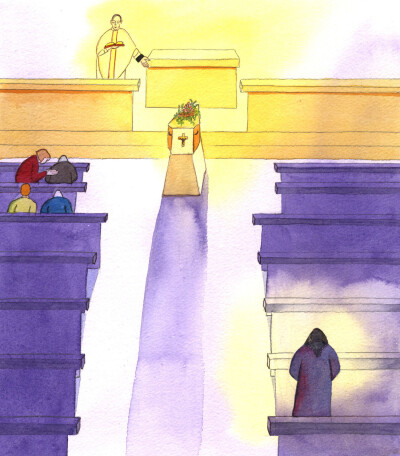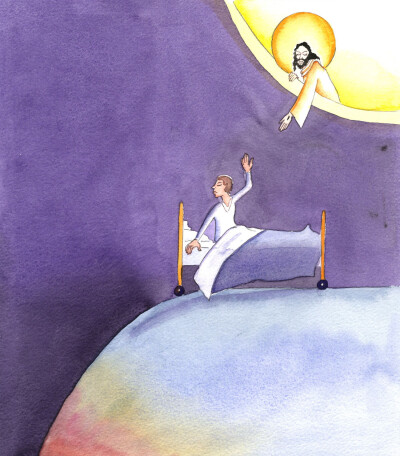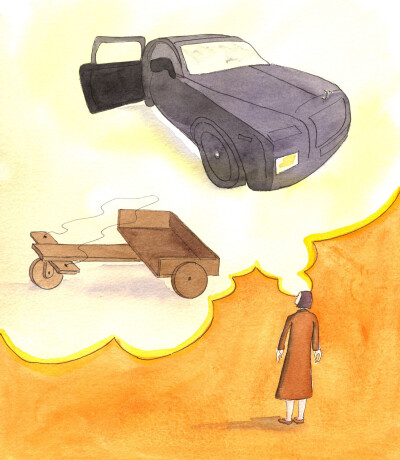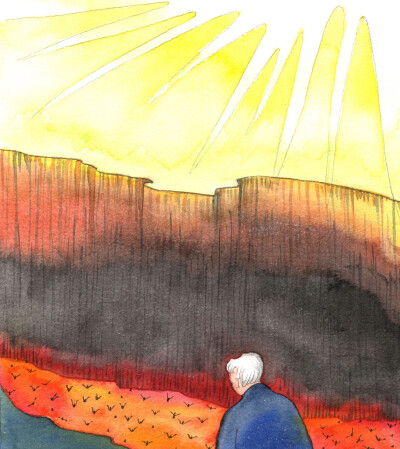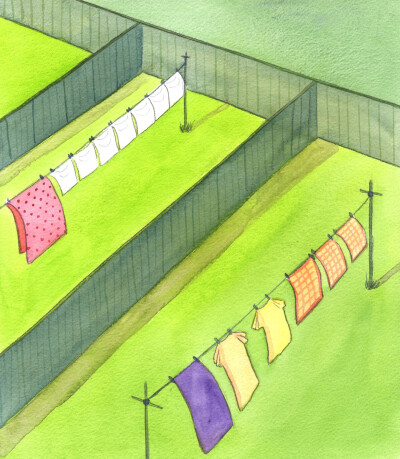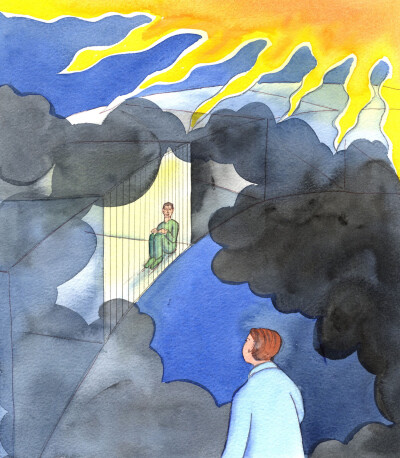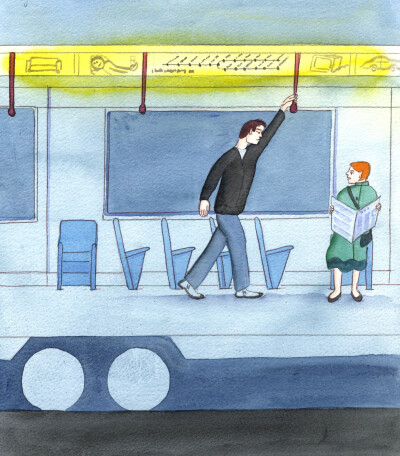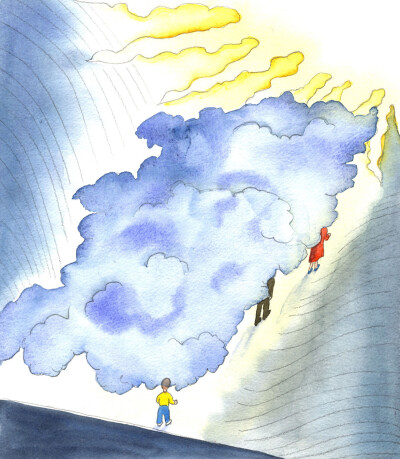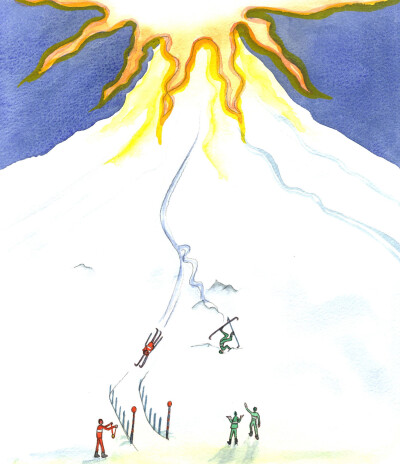Search Page
Showing 2161 - 2180 of 2286
We are not trapped in darkness, far from Heaven. When we pray in a state of grace, in the name of Christ, it's as though, by the power of Christ, we hold up before the Father in Heaven the needy people in our hearts. Each is lifted closer to holiness and Heaven through our prayer - by the grace of Christ - unless he or she deliberately refuses the graces brought in this way, and acts as if to sever the cord that unites that person with our loving intention and with God.
We are not trapped in darkness, far from Heaven. When we pray in a state of grace, in the name of Christ, it's as though, by the power of Christ, we hold up before the Father in Heaven the needy people in our hearts. Each is lifted closer to holiness and Heaven through our prayer - by the grace of Christ - unless he or she deliberately refuses the graces brought in this way, and acts as if to sever the cord that unites that person with our loving intention and with God.
We are not trapped in darkness, far from Heaven. When we pray in a state of grace, in the name of Christ, it's as though, by the power of Christ, we hold up before the Father in Heaven the needy people in our hearts. Each is lifted closer to holiness and Heaven through our prayer - by the grace of Christ - unless he or she deliberately refuses the graces brought in this way, and acts as if to sever the cord that unites that person with our loving intention and with God.
We are not trapped in darkness, far from Heaven. When we pray in a state of grace, in the name of Christ, it's as though, by the power of Christ, we hold up before the Father in Heaven the needy people in our hearts. Each is lifted closer to holiness and Heaven through our prayer - by the grace of Christ - unless he or she deliberately refuses the graces brought in this way, and acts as if to sever the cord that unites that person with our loving intention and with God.
When the Angels bow low, in awe, at the arrival of Jesus Christ, at the Consecration, they demonstrate, by their action, their interior disposition. We can do the same. We can express our adoration and love by reverent gestures, prayers, genuflections, and also by our silence in church, and our modest clothing, and dignified bearing.
If we have abandoned our sins, by God's grace, and if we love God, and arrange our day so that we offer frequent, sincere prayers, we can be sure that God looks upon our soul with delight. It's as if He sees a well-tended, well-watered garden, with weeds under control. We are free to choose one type of prayer or another, just as a gardener can choose to grow more vegetables than flowers. The Holy Spirit guides us.
It is a charitable act - a work of mercy - to attend a Requiem Mass where the sole connection with the deceased and the relations is the communion that is shared in and through Christ. The mourners are comforted by additional prayers, the dead have the Mass offered for the repose of their souls, and the clergy benefit, and God is given glory by our kindness.
Each of us should ask, if we think about death, "Will my soul rise up to Heaven, helped by the outstretched arm of Christ?" If we do not turn to Christ, and allow Him to forgive our sins, and to bring us to Heaven by His Divine power, we cannot save ourselves. We shall have no-where to go except downwards, into the eternal loss-of-God that is called Hell.
Christ has told the Church, through His Pope, our Pope Benedict, that priests are free to offer the Mass in the Extraordinary (Traditional) form; yet many Bishops have shown reluctance to welcome this instruction; or they still make it difficult for lay-persons to find such a type of Mass with its beauty and reverence.
We need not be surprised if enemies of the Church shout out their opposition to her on seeing the Pope, for example, as he pays a visit to another country. Even the Head of the Church, Jesus Christ, experienced opposition, mockery, and worse. But we must keep the Pope and all the Clergy - and the whole Church - in our prayers.
While a man lives, he can hope to be saved. As long as a man lives, he can hope to be able to repent of his sins and to be saved. Even a priest, guilty of scandalous, sinful behaviour, has the hope of being forgiven, changed and made worthy of Heaven, if he is willing to repent, in sincere contrition, and sincere trust in Christ. Repentance is like a rope that God gives him, to draw him from the danger of eternal loss.
We should recognise what God can do in our lives, at our consent. When a grateful person believes in Christ, surrenders to His wishes, and with prayer, penance and acts of charity allows Christ to transform her, whatever the cost, Christ works an amazing transformation. To change a person with sinful ways into someone who lives for the glory of the Blessed Trinity is like changing a go-kart into a Rolls Royce.
God is so good that He sent His own Son to suffer, to save us. Christ has warned us that we follow a 'hard road' to Heaven, and that few find it. People who have fallen into Hell have died unrepentant, having ignored God's laws, taken no notice of the Gospel, and having refused the help of wise friends who warned them of the danger of continuing in grave sin. And now they cry out in horror at their predicament, in the sea of fire in the depths of the Abyss.
Many priests should preach more than at present about Confession. Just as an ordinary housewife can tell if her neighbours are alive and active, if she sees their washing pegged out on the line each day, so a priest knows that many of his parishioners are fervent about Christ and Salvation if they provide evidence by going to regular Confession, as well as doing good for others. What should a priest think if almost no-one goes to the Sacrament of Penance, but everyone goes to Holy Communion?
We are right to pray for prisoners, as we think of one needy group of people, then another, as we make our intercessions; yet the worst sort of 'captivity' is brought about by grave sin, when a person imprisons himself through freely deciding to do what is gravely sinful, or to neglect an important good. The good news is that, helped by Divine Grace, he can repent, and open the door of his 'prison', and set out on the path to Heaven.
Just as we need to trust our judgement when we are in physical danger, so we must, too, in spiritual matters. Just as we are right to feel alarmed if someone entering a nearly-empty train carriage chooses to sit right next to us, so we are not wrong to feel alarmed at indications of spiritual danger; and we should call on the name of Jesus, and prayer of Our Lady to help us, and also use holy water to put Satan to flight.
Wise people look at human life from the perspective of Eternity. We are right to try to be free of our ailments and handicaps - which seem like a great 'cloud' above us - as we move through life, towards Eternity. But even people who are, for example, deaf, or have speech problems, should be confident about life. What is important is communion with God, Who can 'hear' a single thought. Our ailments need not stop us from being close to Him, until our lives end in His presence, where He welcomes His friends into His embrace, in perfect communion, for all Eternity, all 'clouds' dispersed.
It is a cause for concern, when someone is following the Way of Christ, and had seemed willing to continue, but keeps pausing, wasting time, as he puts off doing the good things that he needs to do, to be worthy to enter Heaven joyfully rather than have to suffer in Purgatory. The temptations which threaten to overcome us could lead to our falling into the Abyss, nearby, and rising Eternal Loss.
Already, God sees the end of each of us. From Eternity, God can see, all at once, the whole of human history. He sees which human beings have persevered in the 'race' to holiness and triumph, and which have come to grief through their own sin and foolishness, and have also set a bad example. This is true of the lowliest amongst us, and of clergy as well. Each of us must be alert, because, by some carelessness, or a moment's selfishness, we can drastically alter our direction, take a foolish course, and even lead others astray.
If we are in need of purification in Purgatory, when we die, we should welcome it, because we would be unable to bear the sight of God's glory; so our purification can be seen as a sort of acclimatisation. When we are ready, we emerge, joyfully, longing to enter Heaven, just as a diver ends his slow acclimatisation by bursting joyfully though the surface of the water to be greeted by his friends.
Showing 2161 - 2180 of 2286

